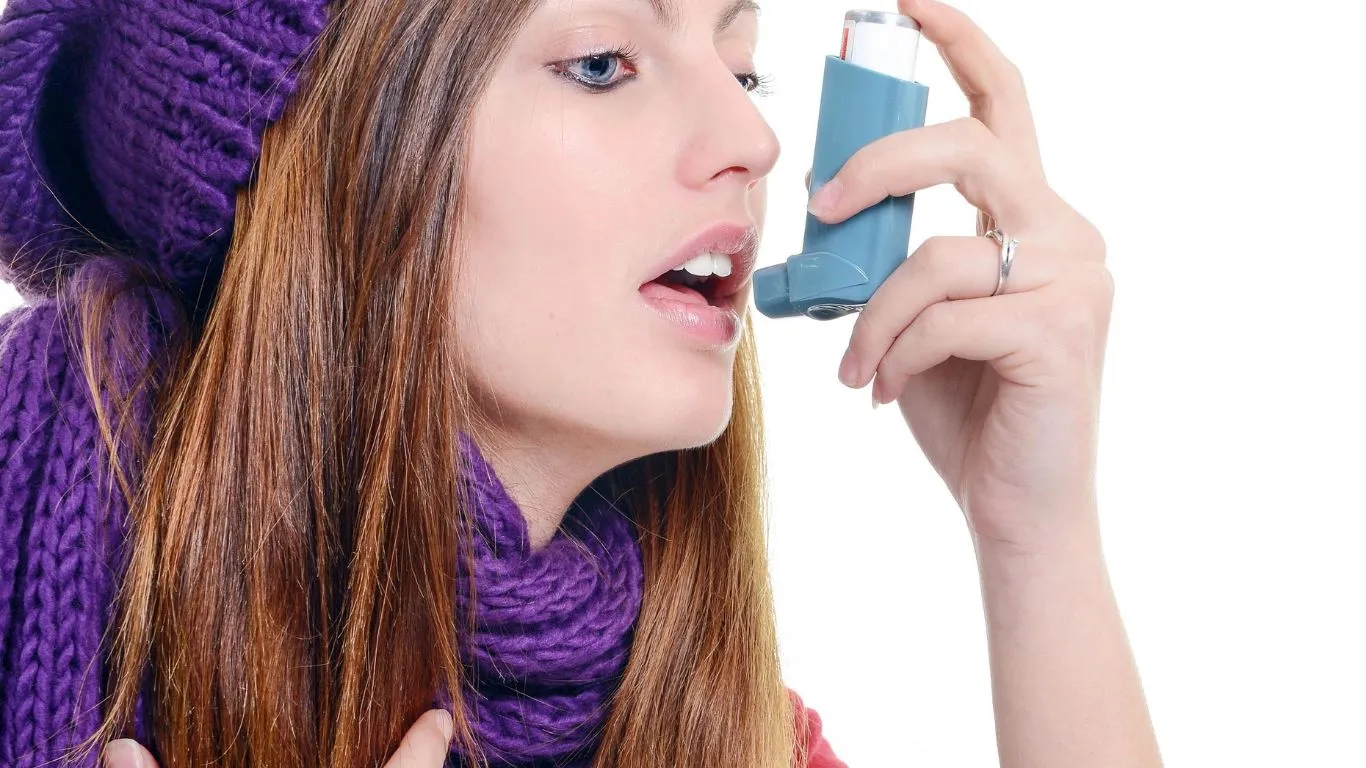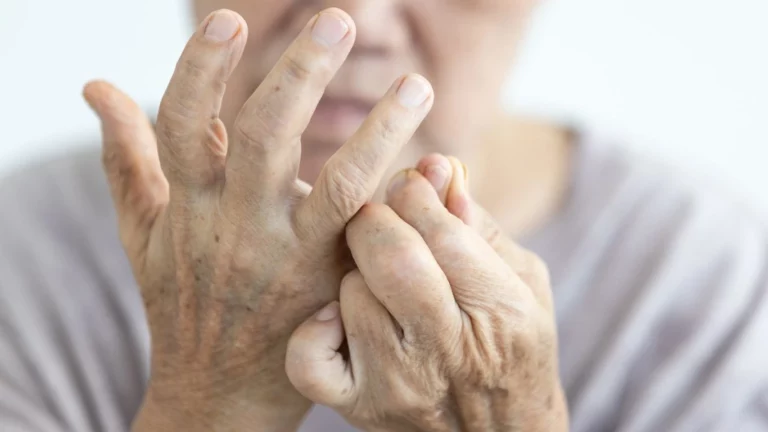Can Asthma Cause Hot Flashes? Understanding the Connection and Management Tips
Can asthma cause hot flashes? You’d be surprised how often that question comes up in my day-to-day work as a Pulmonary Nurse. It might sound like an odd pairing at first—after all, one’s a respiratory condition, and the other is usually tied to menopause or hormonal changes, right? But here’s the thing: the human body doesn’t operate in isolated compartments. Symptoms can blur across systems, and that’s where things get interesting (and confusing) for patients. I’ve seen women—and yes, even men—come into the clinic completely puzzled about why they’re breaking into sudden sweats or feeling flushed during or after an asthma flare-up. So let’s dive into this lesser-known side of asthma, because if you’ve ever found yourself sweating buckets during a wheezing episode, you are definitely not alone.
What’s the Connection Between Asthma and Hot Flashes?

Now, I’m not going to throw a bunch of textbook jargon at you—but here’s what I can say from both clinical experience and research: the connection isn’t as random as it seems. Hot flashes, those sudden waves of heat that leave you sweaty and flushed, are usually linked to hormonal changes, stress, or nervous system responses. Guess what else triggers the nervous system? Asthma attacks.
When your body is under stress—like during an asthma flare-up—your sympathetic nervous system kicks into high gear. It’s your classic fight-or-flight response. That surge of adrenaline? It can raise your body temperature, increase sweating, and make you feel flushed all over. I’ve watched patients go from cool and collected to red-faced and dripping in a matter of minutes during a breathing episode. So, yes, asthma absolutely can cause hot flashes, or something very close to it.
Breaking It Down: What’s Really Happening in the Body?
Let’s simplify this. When someone has asthma, their airways become inflamed and constricted. That leads to shortness of breath, chest tightness, wheezing, and coughing. But behind the scenes, a cascade of internal reactions is happening:
- Stress hormones like cortisol and adrenaline flood the body
- The heart rate climbs, and blood vessels may dilate
- Temperature regulation gets thrown off as the body tries to compensate
All these changes can lead to symptoms that mimic hot flashes—even if they technically aren’t the same thing you’d get during menopause. I’ve seen patients panic, thinking they’re going into early menopause or having a cardiac event, when it’s really a combo of asthma and anxiety causing the heat surge. And I get it—when you can’t breathe properly, your whole body freaks out.
Why Women Might Be More Vulnerable

Here’s where it gets even more nuanced. From what I’ve seen on the clinical floor, women—especially those in their 40s and 50s—are more likely to report these mysterious hot flashes alongside asthma symptoms. That’s not just a coincidence. Hormonal fluctuations tied to perimenopause or menopause can heighten the body’s response to asthma triggers. Estrogen levels drop, and that can make the nervous system even more sensitive to stress, which increases your risk of vasomotor symptoms like hot flashes.
In one particularly memorable case, a patient of mine kept describing what she called “internal combustion” episodes. Every time she had an asthma attack, she felt a wave of heat rush up from her chest to her face. She thought she was having early menopause or maybe something worse. But once we got her asthma under control, guess what? The hot flashes settled too.
Other Contributing Factors That Might Surprise You
Sometimes, it’s not just the asthma itself. Other things play into the mix:
- Medications: Certain asthma medications, like bronchodilators and steroids, can trigger side effects like flushing or night sweats.
- Sleep disruption: Nighttime asthma can mess with your body temperature regulation and sleep cycles, leading to night sweats that feel a lot like hot flashes.
- Anxiety: Let’s be real—when you can’t breathe, it’s scary. That fear can amplify physical sensations, including heat and sweating.
All of this reinforces the idea that asthma doesn’t just live in your lungs—it impacts your entire system. And in my experience, recognizing these connections is the first step toward helping people feel better and less freaked out.
When Should You Be Concerned?

Okay, so we’ve established that asthma can cause hot-flash-like symptoms. But how do you know when it’s just a side effect and when it’s something more serious? As someone who’s worked with hundreds of asthma patients, I always advise the following:
- Track when the hot flashes happen. Are they always during an asthma flare? Do they come after using your inhaler?
- Check for other symptoms. Chest pain, irregular heartbeat, dizziness? That’s a red flag—talk to a doctor right away.
- Look at the bigger picture. If hot flashes are happening frequently and not just during asthma episodes, it could be hormonal or something else entirely.
In short: hot flashes during asthma aren’t necessarily dangerous, but they are worth paying attention to. The more you understand the why behind your symptoms, the better equipped you’ll be to manage them—and advocate for yourself in the doctor’s office.
Managing Asthma and Hot Flash Symptoms Together

So if you’re someone juggling both asthma symptoms and those annoying waves of sudden heat, the next logical question is: what can you actually do about it? As someone who’s coached plenty of patients through this exact mix, I can tell you—managing both is possible, but it takes a little strategy.
First and foremost, your asthma has to be well-controlled. That’s the foundation. When asthma is out of control, the body is constantly in a heightened state of stress. And stress—yep, you guessed it—is a huge trigger for both asthma and hot flashes.
Here’s a mix of clinical tips and things I’ve seen work in real life:
- Stick to a consistent asthma medication routine. Skipping inhalers, especially controllers, can make things worse fast.
- Use a symptom diary. Write down when your hot flashes and asthma flares happen—it can reveal patterns you’d never notice otherwise.
- Try breathing exercises or yoga. Not only can these improve lung function, but they also reduce stress, which may lower hot flash frequency too.
- Hydration and temperature control matter. I tell all my patients: keep a cool pack or fan nearby, and drink water consistently throughout the day.
Sometimes it’s about tweaking your environment, too. I had one patient who realized that her hot flashes got way worse when she was in stuffy rooms or wearing synthetic fabrics. A few wardrobe and environment changes made a massive difference in both her comfort and asthma symptoms.
Asthma Medications That Might Trigger Hot Flashes

Now let’s talk about meds for a second. A lot of people don’t realize that some asthma treatments can actually cause symptoms that feel like hot flashes. I’ve seen this firsthand with patients who started new inhalers or bumped up their steroid dose.
Some common culprits include:
- Short-acting beta agonists (like albuterol): These are your quick-relief inhalers. They can cause jitteriness, flushing, and increased heart rate—all of which feel very “hot flash-y.”
- Oral or inhaled corticosteroids: While amazing at calming inflammation, they can also mess with your sleep, mood, and even cause sweating episodes.
- Leukotriene modifiers (like montelukast): Occasionally, these trigger mood swings or anxiety, which can feed into nervous system responses like heat surges.
In cases where a patient feels like their medication is making things worse, we’ll go back to the drawing board and reassess. Sometimes switching brands, tweaking doses, or adding a second-line medication can make a huge difference.
Always Talk to Your Doctor—Seriously
I can’t stress this enough. If your asthma treatment is giving you symptoms you weren’t expecting—especially something like intense flushing or overheating—bring it up with your provider. No one expects you to just grin and bear it. I’ve had patients who were afraid to speak up, thinking they were imagining things, only to find out a simple change solved the problem.
Hormones, Asthma, and the Nervous System: A Tangled Web

Okay, let’s get into the nitty-gritty for a sec—because I know a lot of people want to understand the “why.” There’s a lot we still don’t fully understand about the way the nervous system, hormonal system, and respiratory system interact. But here’s what we do know from research and clinical practice:
- Hormonal fluctuations (especially estrogen and progesterone) affect airway inflammation. That’s why many women notice worse asthma during their period or menopause.
- Hot flashes are linked to the hypothalamus, the part of your brain that regulates body temperature. When estrogen drops, the hypothalamus gets a little trigger-happy, sending signals that you’re “too hot” when you’re really not.
- The autonomic nervous system (which governs involuntary functions like heart rate, breathing, and temperature) can get overstimulated during asthma episodes, triggering a hot flash-style response.
That’s a lot, I know. But understanding this overlap is so helpful for people who are dealing with both issues. You start to see it’s not all in your head—it’s a real, biological response. And once you know that, it’s easier to manage without spiraling into anxiety or frustration every time your face flushes during a wheezy night.
My Go-To Patient Advice When the Heat Hits
Let me leave you with a few of my tried-and-true pieces of advice. These are the things I share almost daily in the clinic, and they’re simple, realistic, and patient-approved:
- Cool the skin fast: A cold towel on the neck or wrists works wonders.
- Breathe through the heat: Try pursed-lip breathing—it slows your exhale and helps calm both asthma and panic.
- Don’t layer up: Dress in breathable, light fabrics and use layers you can peel off easily.
- Keep rescue meds on hand: Especially if you notice hot flashes kick off an asthma reaction or vice versa.
- Practice mindfulness or grounding techniques: A little mental reset can help break the cycle of stress-induced symptoms.
Everyone’s triggers and relief methods are a little different, but these are solid starting points. And again—don’t try to power through without help. I’ve seen so many people improve their quality of life just by taking the time to understand their symptoms and advocating for adjustments.
Real-Life Experiences: What Patients Are Saying About Asthma and Hot Flashes

As someone who’s spent years working in pulmonary care, I’ve seen firsthand how asthma and hot flashes can truly affect a person’s quality of life. What’s fascinating, though, is the variety of experiences I hear from my patients. Some are able to quickly identify when a hot flash is tied to their asthma flare-ups, while others only notice a connection after we dive into a thorough history.
Take Jennifer, for example. She’s in her mid-40s and has been managing asthma since she was a child. For years, she never experienced hot flashes, or if she did, she chalked it up to the stress of dealing with her asthma. It wasn’t until one particularly harsh asthma attack that she noticed the flush creeping up her chest, followed by a wave of heat. Her breathing settled, but the heat didn’t. This got her thinking: could these hot flashes be connected to asthma?
We talked through her symptoms and discovered a pattern: when her asthma was triggered, her stress level went up, and that would often be when she experienced the worst hot flashes. Once we worked together to tweak her asthma treatment plan, she reported fewer episodes of both—something she never thought was possible!
Another patient of mine, Sandra, had a different story. She’s in her 50s, going through menopause, and dealing with asthma that flares up seasonally. Initially, she didn’t make any connection between her asthma symptoms and the hot flashes she was experiencing. After a detailed conversation and some reflection on timing, we realized her asthma attacks were happening at the same time as her worst hot flashes, particularly during those transition years before and after menopause. After adjusting her medication regimen and starting a few lifestyle tweaks, she noticed her overall symptoms were much more manageable.
These are just two examples, but they highlight something important: many people who live with asthma might not even realize that their hot flashes are related to their condition. If you’re experiencing something similar, it’s worth investigating. I can’t tell you how many people come into the clinic with one issue, only to discover that what they thought was just “hormonal” is actually a blend of factors—like asthma.
How Lifestyle Choices Can Help Manage Both Asthma and Hot Flash Symptoms
When it comes to managing both asthma and hot flashes, I always emphasize the role of lifestyle changes. You’d be amazed at how simple things like adjusting your diet, exercise, and even sleep habits can make a significant difference.
Dietary Adjustments to Help Keep Both Asthma and Hot Flashes in Check
Let’s start with diet. I’ve found that many patients see improvements when they make certain adjustments. Here’s what I suggest:
- Avoid trigger foods: For some, certain foods—like dairy or processed sugar—can worsen asthma symptoms. You might also find that spicy foods or caffeine can trigger hot flashes.
- Incorporate anti-inflammatory foods: Eating foods that are naturally anti-inflammatory, like leafy greens, berries, and omega-3 rich foods (like salmon), can help reduce both asthma inflammation and inflammation that could be contributing to hot flashes.
- Stay hydrated: Dehydration can aggravate both asthma and hot flashes, so drink plenty of water throughout the day to stay cool and hydrated.
Exercise: Balancing It All
Exercise is always a touchy subject for asthma patients. But I’m here to tell you—exercise is crucial for both your asthma and overall well-being. The key is finding the right balance.
Moderate activities like walking, swimming, or cycling can help improve lung capacity and reduce stress, which might, in turn, reduce the frequency of hot flashes. That said, it’s important to consult with your doctor about your specific limitations when it comes to asthma. I’ve worked with patients who were hesitant to exercise, thinking it would trigger an asthma attack. But with the right precautions, they’ve been able to enjoy regular exercise that helps reduce both asthma symptoms and those unpredictable heat waves.
Sleep: The Underrated Hero of Asthma and Hot Flash Management
Let’s not forget about sleep. Poor sleep can wreak havoc on both asthma and hot flashes. I see so many patients who complain of insomnia, but once we adjust their asthma treatment plan and focus on creating a better sleep routine, they start seeing real improvement in both their asthma control and the intensity of their hot flashes.
Creating a cool, comfortable sleep environment can work wonders. And, don’t underestimate the power of a bedtime routine that helps you wind down. Whether it’s reading a book, doing some light stretches, or practicing deep-breathing techniques, these small steps can have a major impact on your ability to rest peacefully—and manage both your asthma and hot flashes.
When Should You Seek Professional Help?
While making adjustments to diet, lifestyle, and medication can significantly improve your quality of life, it’s important to know when to seek professional help. If you’re managing both asthma and hot flashes and nothing seems to help, it’s time to check in with your healthcare provider. Some red flags to watch for include:
- Frequent or severe asthma attacks: If your symptoms are worsening or you’re using your rescue inhaler too often, it’s time to reassess your asthma treatment.
- Uncontrolled hot flashes: If your hot flashes are interfering with your daily life or are more intense than usual, it may be time to explore other options like hormone therapy or other treatments.
- New or worsening symptoms: If you notice a sudden change in your symptoms—whether asthma-related or related to hot flashes—don’t hesitate to get medical advice.
Remember, your healthcare provider is your partner in managing both asthma and any other symptoms you’re dealing with. Never hesitate to ask questions, seek second opinions, or ask for adjustments to your plan. You’re the expert in your own body, and your healthcare team should support you in finding the best path forward.
References
Disclaimer
While I strive to provide accurate and up-to-date information based on my experience as a Pulmonary Nurse, this article is for informational purposes only. Always consult with your healthcare provider for advice and guidance tailored to your individual health needs.

Bianca Nala is a compassionate Nurse Practitioner with a strong background in primary and respiratory care. As a health writer for Healthusias.com, she combines her clinical expertise with a talent for clear, relatable storytelling to help readers better understand their health. Bianca focuses on topics like asthma, COPD, chronic cough, and overall lung health, aiming to simplify complex medical topics without losing accuracy. Whether she’s treating patients or writing articles, Bianca is driven by a single goal: making quality healthcare knowledge accessible to everyone.







